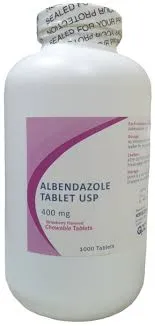- Afrikaans
- Albanian
- Amharic
- Arabic
- Armenian
- Azerbaijani
- Basque
- Belarusian
- Bengali
- Bosnian
- Bulgarian
- Catalan
- Cebuano
- Corsican
- Croatian
- Czech
- Danish
- Dutch
- English
- Esperanto
- Estonian
- Finnish
- French
- Frisian
- Galician
- Georgian
- German
- Greek
- Gujarati
- Haitian Creole
- hausa
- hawaiian
- Hebrew
- Hindi
- Miao
- Hungarian
- Icelandic
- igbo
- Indonesian
- irish
- Italian
- Japanese
- Javanese
- Kannada
- kazakh
- Khmer
- Rwandese
- Korean
- Kurdish
- Kyrgyz
- Lao
- Latin
- Latvian
- Lithuanian
- Luxembourgish
- Macedonian
- Malgashi
- Malay
- Malayalam
- Maltese
- Maori
- Marathi
- Mongolian
- Myanmar
- Nepali
- Norwegian
- Norwegian
- Occitan
- Pashto
- Persian
- Polish
- Portuguese
- Punjabi
- Romanian
- Russian
- Samoan
- Scottish Gaelic
- Serbian
- Sesotho
- Shona
- Sindhi
- Sinhala
- Slovak
- Slovenian
- Somali
- Spanish
- Sundanese
- Swahili
- Swedish
- Tagalog
- Tajik
- Tamil
- Tatar
- Telugu
- Thai
- Turkish
- Turkmen
- Ukrainian
- Urdu
- Uighur
- Uzbek
- Vietnamese
- Welsh
- Bantu
- Yiddish
- Yoruba
- Zulu
დეკ . 30, 2024 06:07 Back to list
what kills tapeworms in goats
Understanding What Kills Tapeworms in Goats
Tapeworms pose a significant health challenge for goats, affecting their overall well-being and productivity. As ruminants, goats are particularly susceptible to parasitic infections due to their grazing habits. Consequently, understanding what kills tapeworms in goats is crucial for farmers looking to maintain healthy herds. This article will explore the types of tapeworms that affect goats, the symptoms of infection, treatment options, and preventive measures.
Types of Tapeworms in Goats
The most common tapeworms that infest goats belong to the species Moniezia, which are large parasites that can inhabit the intestines of these animals. Moniezia expansa and Moniezia benedeni are the two primary types associated with goats. These tapeworms can grow several meters long and attach themselves to the intestinal lining, feeding on the digested nutrients of their host. Unlike other parasites, most goats can tolerate a low-level infection without severe symptoms; however, when the infestation becomes severe, it can lead to serious health issues.
Symptoms of Tapeworm Infection
Goat owners should be vigilant for signs of tapeworm infection in their animals. Common symptoms include
1. Weight Loss Despite a healthy appetite, infected goats may fail to gain weight or may even lose weight due to nutrient absorption issues. 2. Diarrhea Infected goats may exhibit intermittent diarrhea, which can be watery and foul-smelling.
3. Poor Coat Condition The overall health of the goat may deteriorate, resulting in a dull, rough coat.
4. Weakness and Lethargy Infections can lead to a general decline in energy levels, making goats less active than usual.
5. Bloating Severe infestations may lead to abdominal distension or bloating.
If any of these symptoms are observed, it is advisable to consult with a veterinarian for proper diagnosis and treatment.
Treatment Options
When it comes to eliminating tapeworms in goats, several options are available. Anti-parasitic medications, known as anthelmintics, are the primary form of treatment. Commonly used classes of anthelmintics for tapeworm treatment include
what kills tapeworms in goats

1. Praziquantel This is one of the most effective treatments for tapeworm infestations. It works by causing paralysis in the worms, allowing them to be expelled from the goat's intestines.
2. Fenbendazole This broad-spectrum anthelmintic can also be effective against tapeworms, particularly when used in combination with other treatments.
3. Albendazole This medication is another effective option for controlling tapeworm infestations and is often used in combination with praziquantel for maximum efficacy.
It is crucial for goat owners to follow the veterinarian's advice regarding dosage and administration of these medications, as incorrect usage can lead to insufficient treatment or resistance development.
Preventive Measures
Prevention is always better than cure, and implementing good management practices can significantly reduce the risk of tapeworm infestations in goats. Here are some preventive measures
1. Regular Deworming Establishing a deworming schedule with a veterinarian can help keep tapeworm populations under control. Regular fecal egg counts can guide the need for deworming.
2. Pasture Management Rotating pastures and avoiding overgrazing can limit the exposure of goats to tapeworm segments that may be present in the environment.
3. Hygiene Practices Maintaining cleanliness in feeding areas and minimizing the accumulation of feces can reduce the risk of infection.
4. Quarantine New Animals Before introducing new goats to the herd, it is vital to isolate them for a period and check for any signs of parasitic infections, including tapeworms.
5. Balanced Diet Providing a well-balanced diet can enhance the overall health of goats, making them less susceptible to infections.
In conclusion, tapeworms can have a serious impact on goat health, but with proper knowledge and management, goat owners can effectively kill these parasites and prevent future infestations. Understanding the types of tapeworms, recognizing the symptoms, adhering to treatment protocols, and implementing preventive measures are all critical steps toward ensuring the health and productivity of goats. Regular veterinary consultations and proactive management are essential components in maintaining a healthy herd.
-
Guide to Oxytetracycline Injection
NewsMar.27,2025
-
Guide to Colistin Sulphate
NewsMar.27,2025
-
Gentamicin Sulfate: Uses, Price, And Key Information
NewsMar.27,2025
-
Enrofloxacin Injection: Uses, Price, And Supplier Information
NewsMar.27,2025
-
Dexamethasone Sodium Phosphate Injection: Uses, Price, And Key Information
NewsMar.27,2025
-
Albendazole Tablet: Uses, Dosage, Cost, And Key Information
NewsMar.27,2025













